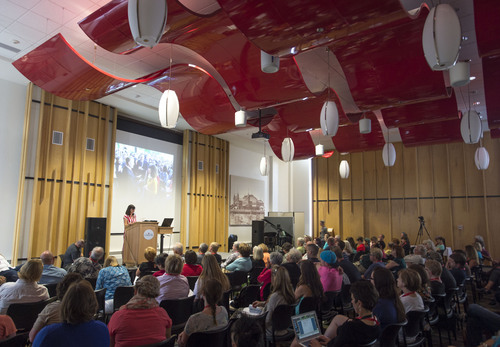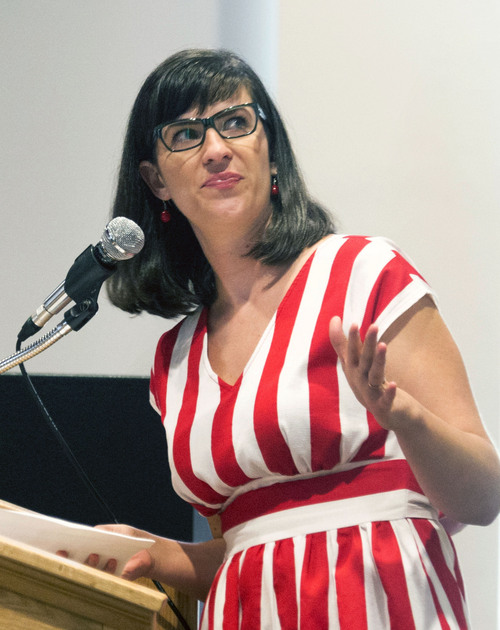This is an archived article that was published on sltrib.com in 2014, and information in the article may be outdated. It is provided only for personal research purposes and may not be reprinted.
LDS officials have said that simply asking about the possible ordination of women to the all-male priesthood is not a problem, but the approach taken by Ordain Women is.
In other words, a question's "tone," more than its tune, is what makes it off-limits for Mormons.
Yet there is no acceptable tone for LDS leaders since these feminists are challenging the status quo, said several speakers Saturday on the last day of the annual Sunstone Symposium in Salt Lake City.
The women, speaking on a panel discussion about "Making History and Challenging Patriarchy in the Digital Age," included Ordain Women founder Kate Kelly, who was excommunicated from The Church of Jesus Christ of Latter-day Saints in June for her efforts to push for the priesthood.
Panelists agreed that Ordain Women had worked hard to create respectful discussions of the issue, maintaining their support for leaders and asking them to pray about female ordination.
The group was "very intentional about tone," Kelly said. "We were trying to set a tone and make an open space for active Mormon women … and for those who were no longer LDS."
In April and October, the women walked quietly to Temple Square in Salt Lake City to ask for standby tickets to the all-male priesthood session of the faith's General Conference. They dressed in Sunday best, carried no signs, chanted no slogans. They were turned away each time — in the fall after being asked by LDS public relations officials not to enter Temple Square.
To the church, respectful meant deferential, Kelly said, and, no matter how they voiced their concerns, participants in the Ordain Women movement were not perceived as adequately submissive to authority figures.
Janice Allred, who was excommunicated in 1995 for her writings, argued that the faith's structure doesn't allow for such concerns to reach the highest authorities.
"There are no proper channels to petition for rights," she said. "There is no way to address systemic problems in the LDS Church."
Mormons have a hard time dealing with conflict, especially on questions of doctrine and policy, said Margaret Toscano, who was tossed out of the church in 2000 for her feminist writings.
Inevitably, Toscano said, if you challenge the system, you will be accused of using "the wrong tone."
"All issues about tone, attitude, spirit and interpretation," she said, "are about knowing your place."
In an hourlong interview with KUER's "Radio West" host Doug Fabrizio, LDS Church spokeswoman Ally Isom twice made reference to Jesus Christ yielding his will to God the Father, Toscano said. Each church member then is expected to yield his or her will to those above.
"Apostasy is not knowing your place in the priesthood hierarchy," she said, "which for women is at the bottom."
Women's tone can cut another way, too, said panelist Nancy Ross, who heads the social media committee for Ordain Women.
She said Mormon women often use an infantilizing way of speaking in public — adopting a so-called Primary voice that is most often associated with children — even when addressing adults and mature topics.
"It's a voice you do not respect, but look down on," Ross said. "It's one you do not want to use."
Adopting that Primary voice is one more way, she said, women have been demeaned and disrespected in a church run by men.
Twitter:@religiongal









